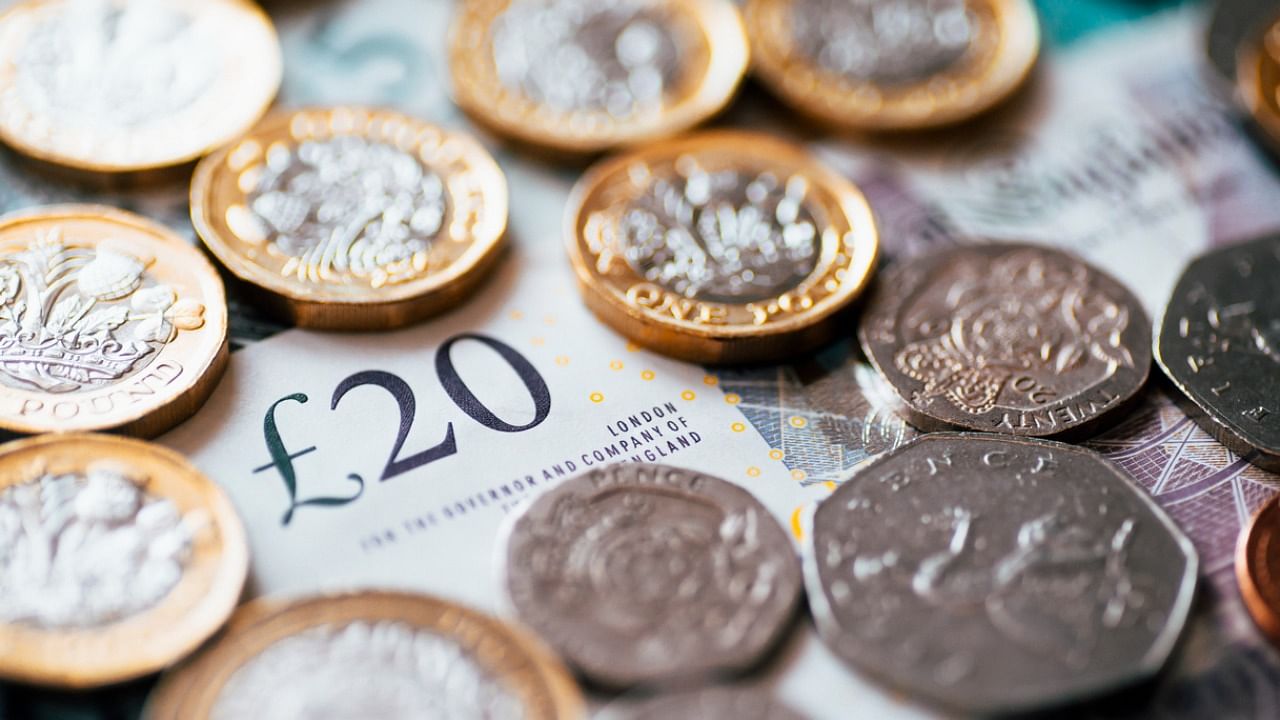
Great Britain Pound Currency
Credit: iStock Photo
London: British Prime Minister Rishi Sunak suffered a pre-election setback on Thursday when data showed the economy fell into a recession in the second half of 2023, but his finance minister Jeremy Hunt said the outlook for this year was brighter.
Sunak is expected to opt for an election in October or November when inflation is forecast to be lower than now and the economy growing again, albeit slowly.
There is also a strong chance that the Bank of England will start cutting interest rates around the middle of 2024.
Following are graphics showing what is expected to happen to some of the key indicators of the economy this year.
ECONOMY TO RETURN TO GROWTH, SLOWLY
Britain's economy has been stagnating for around two years after its coronavirus slump and recovery.
The BoE expects output will grow by just 0.25% in 2024 and 0.75% in 2025, much weaker than annual growth of around 3% in the decade before the 2007-09 financial crisis and below even its rate during the 2010s, a period marked by public spending cuts.
Finance minister Hunt has said previous forecasts for Britain's economy have proven wrong and his plans for the economy are working.
GROWTH MOMENTUM TO PICK UP OVER 2024
Sunak and Hunt might take some comfort from forecasts showing the economy is likely to gather a bit of pace as 2024 goes on.
Analysts polled by Reuters last month expected growth of 0.1% in the first and second quarters of the year, picking to 0.2% in the third and fourth quarters, when the election is most likely to be held.
That would still be far slower than average quarterly growth of about 0.5% growth in the five years before the coronavirus pandemic.
Hunt is widely expected to announce further tax cuts in his March 6 budget which could accelerate growth.
INFLATION TO FALL BACK TO 2%
Inflation hit a 41-year high of 11.1% in October 2022, contributing to a squeeze on the finances of households. After drifting down slowly at first, it has fallen more sharply in recent months and looks set to hit the BoE's target soon although it is expected to edge up again later this year.
With wages rising faster than inflation - they increased by about 6% in annual terms at the end of last year - the incomes' squeeze will soften a bit. Measures of confidence among consumers have picked up in recent months.
But it will be 2027 before poorer households recover their pre-pandemic spending power, according to the National Institute or Economic and Social Research, a think tank.
UNEMPLOYMENT TO RISE, BUT LESS THAN FEARED
Unemployment is expected to rise as 2024 goes on as the impact of the BoE's steep run of interest rate hikes between December 2021 and August last year hits businesses.
But the BoE this month revised down its forecast for the jobless rate for the end of 2024 to 4.6% from a previous estimate of 4.9% as it adjusted its projections to the sharp fall in inflation expected in the coming months.
At 4.6%, unemployment would be a lot lower than it has been in the past. In 2011, when Britain was still recovering from the global financial crisis, the jobless rate averaged 8.1%.
ONLY A LITTLE RELIEF FOR LIVING STANDARDS
Sunak and Hunt announced a tax cut for workers last November with a reduction in social security contributions that began in January. Lower-income households will get another boost in April when the minimum wage goes up by almost 10%.
However, real household disposable incomes remain on course for the only fall from one election to the next since World War Two, according to the Resolution Foundation think tank. The last general election was in December 2019.
The government says much of that pain is due to its attempts to repay the huge costs of supporting the economy and households during the pandemic and the energy price surge in 2022.
MORE GIVEAWAYS?
Sunak and Hunt have made it clear that they want to cut taxes again for households and businesses and they are crunching the numbers before the March 6 annual budget statement.
The Financial Times reported on Wednesday that Hunt was considering cutting billions of pounds from already stretched public spending plans to fund tax cuts in his budget, if the public finances prove too tight to do it any other way.
The Resolution Foundation estimates the 13 billion pounds ($16.3 billion) of room that Hunt had for tax cuts or extra spending after his November budget update was less than half the average for most of his predecessors since 2010.
(Writing by William Schomberg Graphics by Sumanta Sen; Editing by Susan Fenton)